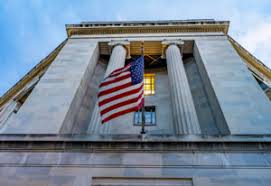DOJ Announces Voluntary Disclosure Program for Criminal Export and Sanctions Violations

The Justice Department is often criticized for its lack of transparency. But when it comes to policy changes or initiatives, DOJ is more than transparent – DOJ always tells the public what it plans to do and then does it. When people act surprised about a policy initiative or a DOJ announcement or speech on a subject, they simply failed to read DOJ’s statements or keep up with DOJ reporting.
In December 2019, DOJ’s National Security Division announced the adoption of its own corporate enforcement policy applicable to companies that violate export controls or sanctions. See DOJ’s Export Control and Sanctions Enforcement Policy for Business Organizations (Here).
DOJ’s Policy tracks many of the same requirements governing criminal enforcement in the Criminal Division and the Antitrust Division announced earlier in 2019.
Before describing the specific elements, there is one important observation. DOJ is likely to receive a larger number of voluntary disclosures. DOJ explained that a voluntary disclosure to the regulatory agencies – OFAC or the Department of Commerce or Department of State – will not constitute a “voluntary disclosure” for purposes of the Justice Department Policy.

In fact, the Justice Department “encouraged” companies to voluntarily self-disclose all potentially willful violations of the primary export control and sanctions statutes (e.g. Arms Export Control Act (AECA), the Export Control Reform Act (ECRA) and the International Emergency Economic Powers Act (IEEPA). In defining a willful violation, DOJ cited the well-established standard set forth in Bryan v. United States, 524 U.S. 184 (1998), under which an act is willful if done with knowledge that it is illegal. The government does not have to establish that the defendant was aware of the specific law, rule or regulation that its conduct may have violated.
In light of this standard, and the fact that regulatory voluntary disclosures will not satisfy the DOJ disclosure requirements, companies have to undertake a careful examination of the evidence surrounding the intent of the actors involved in a violation. Such conduct, if willful, could then be attributed to the company and open up potential criminal liability.
Given this DOJ-specific disclosure requirement, it is clear that DOJ will receive a significant increase in voluntary disclosures, and you can rest assured that criminal prosecution of export control and sanctions violations against companies and individuals will increase. This is a significant risk that will complicate and elevate the importance of overall trade compliance.
Aside from this important and new risk, DOJ’s new Export Control and Sanctions Enforcement Policy includes the following:

- When a company (a) voluntarily self-discloses export control or sanctions violation to DOJ; (b) fully cooperates; and (c) timely and appropriately remediates, there is a presumption that the company will receive a non-prosecution agreement and will not pay a fine, absent aggravating factors.
- Aggravating factors include exports of items that are particularly sensitive or to end users that are height of concern; repeated violations; involvement of senior management; and significant profit.
- If a company satisfies all the 3 elements above but fails to earn a NPA because of aggravating factors, DOJ will recommend a fine that is, at least 50 percent less than the mount that would otherwise be available under 18 USC Section 3571(d), and will not recommend a corporate monitor, if the company has, at the time of resolution, implemented an effective compliance program.
- Even in case where a company earns an NPA, the company will have to disgorge any if the unlawful profits earned from the conduct underlying the violations.















